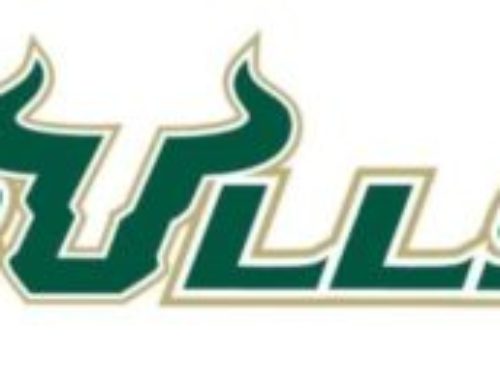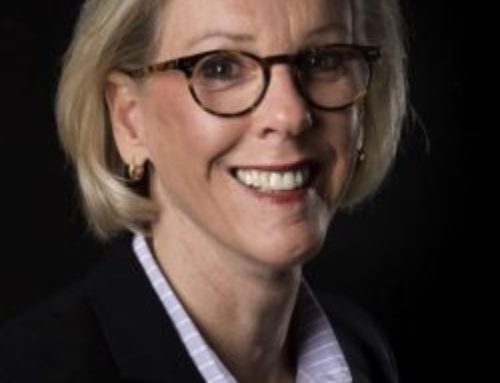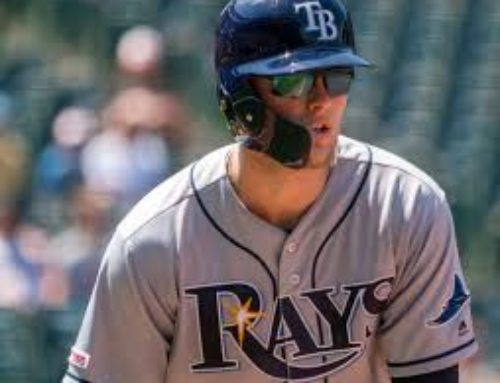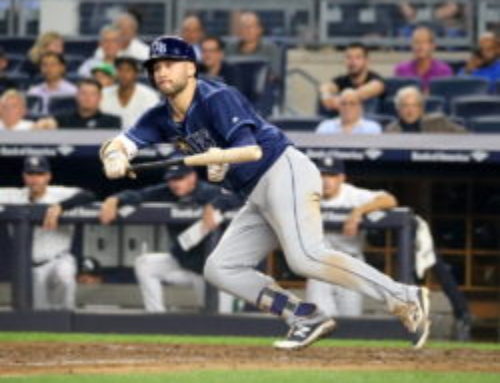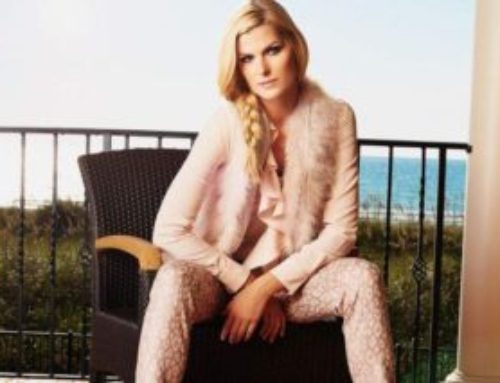By JOEY JOHNSTON
Tribune Staff Writer
(c) Tampa Bay Times. Originally published March 26, 1999.
Where was Magic?
On a snowy evening in early January, with minus-2 degree temperatures outside, the double-decker Harley Hotel, 10 minutes from the campus of Michigan State University, was hosting a reunion. Twenty years after their historic NCAA basketball championship, the 1979 Spartans had gathered.
Nearly everyone had turned 40. Some brought their children. Over cold cuts, chips and frosty beer bottles, there were the usual jokes about fading hairlines and bulging waistlines. There were wistful memories of the Final Four. From shaky beginnings to an all-night party in the parking lot of a Salt Lake City hotel complex. How sweet it was.
They were all there — except one.
Where was Magic?
In the corner, the ancient videotape was playing. It hummed in the background. No one was watching. If you strained, you can hear shockingly baby-faced NBC-TV commentator Bryant Gumbel:
Those who believe in magic and those appreciate the beauty of a rare bird have come to Salt Lake City to witness the drama of a new basketball national champion …
Twenty years ago, those words were grand theater for nearly 18 million television households. Not now. Too much conversation. Too many belly laughs. Now those words are just window dressing for a party.
Between stories, everyone has the same question. Where was Magic?
It was just days after an unexpected snowstorm paralyzed the Detroit airport, some 85 miles to the southeast. More snow was falling.
The hours passed like minutes. Pretty soon, the food nearly was gone. Things were breaking up. Telephone numbers were exchanged. Some fumbled for room keys. Then you noticed that familiar Hollywood smile. He walked through the door. Everyone was grinning.
And like magic, he suddenly was Earvin.
He hadn’t seen some teammates for years. He hugged old buddies. For kids and a trail of gaping hotel staffers, he signed autographs. Earvin Johnson then joined in, telling tales about road trips, doing hilarious imitations of Coach Jud Heathcote, waxing proudly on the team’s grim determination at crunch time.
Someone had a camera. Men squeezed tightly together, laughing and clowning, with Johnson in the center of it all, as usual.
“Whenever I come back here, it’s a beautiful thing,” said the basketball icon known as Magic Johnson. “I’m never ‘Magic.’ I’m Earvin. Just plain, old Earvin. I’m back in college, back in 1979, like a kid again.
“These truly are my people. I’ve been a lot of places and done a lot of things. But the bond I have here is unbreakable. We shared some incredible moments. And you know what? It’s one tremendous story.”
YOU WANT a tremendous story? How about Michigan State returning to the Final Four in the school’s 100th season of basketball, on the 20-year anniversary of its much-celebrated championship team?
When Michigan State meets Duke in Saturday night’s national semifinal at Tropicana Field, Earvin “Magic” Johnson will be there, along with a few teammates from 1979. Their story will be well-chronicled. But which story?
The story purely about college basketball?
In 1979, Michigan State faced unbeaten Indiana State. The two best teams. The two best players. Michigan State overpowered the top-ranked Sycamores 75-64.
The story about television ratings?
Normally, a Michigan State-Indiana State championship game would be disastrous for ratings. But this was Ali-Frazier. This was one-on-one, Magic vs. Bird, a budding matchup that evolved into an enduring rivalry. The NBC telecast drew a 24.1 rating and 38 share, still record numbers for college basketball.
The story about similarities?
Michigan State had Johnson, 19, a 6-foot-8 point guard who elevated no-look passing into an art form. Indiana State had Larry Bird, 22, a 6-9 forward who had a redoubtable jump shot but valued the assist even more. Superstars, yes. But also gritty team players.
The story about contrasts?
Johnson loved attention. He smiled incessantly. Bird did not talk to reporters. There was no national television coverage of Indiana State until the last game of the regular season. For that matter, there was no ESPN, no USA Today. “People heard the name ‘Larry Bird,’ but had never seen him,” said Bob Heaton, a former Sycamore player. “I had several friends in Colorado who said they thought Larry Bird was black. They didn’t know until they finally saw him on TV.”
The story about perfect timing?
The Final Four, post-UCLA dominance, was a nice event. The Bird-Magic game, some argue, transformed it into a national event, one that rivals the Super Bowl. With the 1979 TV ratings acting as a hammer, the Final Four grew into a fat new CBS contract, then into domed stadiums.
The story about how it saved the NBA?
Johnson, a sophomore, bolted early for the NBA when he learned the Los Angeles Lakers had the first overall draft pick after a trade with the Utah Jazz. Bird was signed by the Boston Celtics, who drafted him a year earlier. Johnson ushered in the Lakers’ Showtime era. Boston’s hard-to-please fans appreciated Bird’s mix of flash and blue-collar hustle. They combined for eight NBA titles in the 1980s, including three head-to-head matchups in the finals.
“Both of them came in under a spotlight,” said former Philadelphia 76ers forward Julius Erving, who was the NBA’s unofficial ambassador when Bird and Johnson entered the league. “They get much credit for the success of the league, and deservedly so.
“This was the ‘Hick from French Lick’ against the kid from Lansing who played like he was from outer space. The thing I liked was I felt they were watching me at banquets, at all-star games. They were watching how I did interviews, how I did public appearances. They soaked it in. When I retired [in 1987], I left with a clear conscience. I felt the league was in excellent hands with Magic and Bird.”
March 26, 1979: Michigan State 75, Indiana State 64 at Salt Lake City.
Plenty of stories.
But where do you start?
THE GAME will be saluted in “Magic vs. Bird: The Game That Changed The Game,” a one-hour documentary Sunday night at 9 on Sunshine Network. It will have game footage, video from the high school careers of Bird and Magic and interviews with many of the game’s principals.
As the title suggests, the documentary’s premise is the growth of the Final Four and NBA sprung from the ’79 championship game.
There are dissenting voices. The most notable is CBS-TV commentator Billy Packer, who this weekend will work his 25th consecutive Final Four. Packer said it’s all revisionist history, an event that has taken on layers and grown larger with age. It wasn’t a great Final Four, he said, not even a good one.
Still, even Packer acknowledged these were two special talents. Johnson, a native of Lansing, Mich., who selected Michigan State over Michigan, was unusually skilled. A big-man body with a point-guard mentality.
“He would throw the ball to guys and they couldn’t catch his passes,” said Rick Kaye, a reserve forward for the ’79 Spartans. “We had a lot of guys get hit in the head. I remember Earvin in pickup games. He’d never give up the court. He used to equate it to championships won by UCLA. He’d say, “That’s eight in a row, just like UCLA.’ We fed off his enthusiasm.”
Bird’s route to Indiana State was less predictable.
Originally, he enrolled at Indiana University to play for Coach Bob Knight. Bird left the IU campus after two weeks and returned home to French Lick, Ind. If not for the persistence of Bill Hodges, then Indiana State’s assistant coach, Bird might have given up college basketball.
“I just fit in really well at Indiana State,” Bird said. “I was happy there. I liked the team because it was a team, not a bunch of individuals. We did pretty well because we got all the way to the Final Four without losing a game. That was a big deal and we were thinking we could go all the way.”
But Michigan State was better positioned for the Final Four. And the reason probably had nothing to do with basketball.
When the Spartans returned from their 80-68 win against Notre Dame in the Mideast Region final, fans were giddy. Every day was a bake sale. Spartan players were inundated by cakes, cookies and other sweets from well-wishers. Heathcote was becoming annoyed.
“That’s when Jud made probably his best move, the thing that probably won the tournament for us,” Johnson said. “He got us out of town.”
Michigan State arrived in Salt Lake City on a Tuesday, two days before other teams. The Spartans had a memorable dinner at a plush ski resort. They rented a van and attended movies as a team. They practiced and adjusted to the altitude. They were ready.
Boy, were they ready.
Michigan State 101, Pennsylvania 67.
That was the first semifinal score. And it was uglier than it sounded. The Spartans led 50-17 at halftime. Johnson said he and teammate Greg Kelser were highly motivated by comments in Penn’s pregame news conference.
“Penn was talking so much trash,” Johnson said. “We were sitting there in the back listening to it. They were saying, ‘They’re not gonna dunk on us.’ It was ridiculous. The next day, I let them know. ‘Not gonna dunk on us, huh? That’s one.’ Then, ‘Not gonna dunk on us, huh? That’s two.’
“If that [pregame comments] doesn’t happen, we maybe win in a 15-point game or something like that. We were just on top of our game. The worst thing you could do is run your mouth on us. We took it out on you.”
The Spartans hustled through their postgame interviews because they wanted to see Bird. They saw plenty of Bird, who was 16-for-19 from the field. Indiana State beat DePaul 76-74 as Bird, even with a fractured thumb, scored 35 points.
“We were impressed,” Kelser said. “He could shoot. He could pass. He could flat-out play. We knew we had our work cut out.”
The nation had the final it wanted – Bird vs. Magic – and Heathcote was deep into his planning. He was concerned with Bird’s long-range shooting and also his ability to create off the dribble.
Heathcote devised a matchup zone. He said “a man-and-a-half” would run to Bird each time he touched the ball. That would cut off the passing lanes, inhibit his court vision and bother attempts to dribble. During Sunday’s practice, Heathcote needed someone to simulate the deep shooting of Bird.
He picked Johnson.
“I’m playing Larry Bird, shooting long-distance, and everything is going in,” Johnson said. “The man-and-a-half was there, but I couldn’t miss. I was hitting from the hash mark. Jud went absolutely crazy. He was saying, ‘Larry Bird is going to kill us tomorrow! He’s going to kill us!’
“Then he turned and whispered to me, ‘E, hopefully you’ll shoot like that tomorrow.’ “
As usual, Michigan State’s players pounced on any inspiration, this time getting angry when Indiana State showed up at the gymnasium with 10 minutes left in the Spartans practice. “They had to pay for that,” Johnson said. “They came in with the cowboy hats and they were laughing and carrying on. Once again, Jud was going crazy. But we knew. They had to pay.”
Even Spartans’ fans were mad. During a visit to the Mormon Tabernacle Choir, one of the selections was “Hail To The Victors.” That’s the fight song for the University of Michigan, MSU’s biggest rival. Oops.
“We were chomping at the bit,” Kelser said. “Waiting another day to play was like torture.”
Meanwhile, Indiana State was trying to lay low. The NCAA talked Bird into holding a news conference and he stole the show.
Reporter: “How’s your thumb?”
Bird: “Broke.”
When the news conference ended, Bird returned to seclusion. “I didn’t go out too much back then,” he said. “I wasn’t interested in getting caught up in any hoopla. I was just thinking about winning the game.”
Meanwhile, Heaton, who grew up on an 80-acre farm in Indiana, wanted to soak it all in. He played H-O-R-S-E against Packer during Sunday’s practice. He thought back to the previous year’s final, Kentucky vs. Duke, which he watched on television. He never dreamed he would be a Final Four participant.
Heaton knocked on the door of Craig McKee, ISU’s assistant sports information director. He had to talk. Heaton said he was smelling the roses, enjoying the ride. The significance of the trip finally had dawned on him. And he was excited.
The stage was set.
NBC ORIGINALLY WANTED to lead its telecast with a tribute to Bob King, the Indiana State coach who was recuperating from a preseason illness. Hodges, the assistant, took over and led the Sycamores to 33 consecutive wins. NBC President Don Ohlmeyer overruled the plan. America was talking about Bird and Magic. Ohlmeyer wanted to create stars.
The game failed to match the buildup – but what game wouldn’t fall short?
Bird had an off-night shooting (7-for-21) and everyone thought he was hampered by the injured thumb. Michigan State’s defense actually was the bigger worry. The Spartans were on. Johnson had 24 points and seven rebounds. Kelser had 19 points and eight rebounds. An unexpected impact was made by left-handed guard Terry Donnelly, who was 5-for-5 from the field with 15 points.
“I knew early this was a different game, a different opponent,” Heaton said. “Michigan State stole the ball and had a four-on-one break. That had never happened before. Four-on-one. Such quickness. I remember thinking, ‘Uh-oh.’ “
“We each had a superstar,” Johnson said. “But we actually had two superstars with Greg Kelser. Indiana State couldn’t match that. They couldn’t stop us.”
The day before, Donnelly was laid up with a 102-degree temperature. He couldn’t keep down food. At halftime, Heathcote told Donnelly to be ready, that ISU probably would double-team Magic to stop his penetration. Donnelly would be open. “Knock those shots down, Terry,” Heathcote said.
“I didn’t have enough energy to be excited,” Donnelly said. “My normal goal was to play defense and stay out of the way of Earvin and Greg. Yeah, I’m the guy who hit all those shots. But afterward, I just went to bed. Hey, where were you going to go to party in Salt Lake City, anyway?”
The Spartans held a high-energy party on the court. As he snipped a strand of the net, Johnson looked at Bird, who was crying into a towel. Johnson went over and whispered into his ear.
“I thought, ‘You know, a few different things and that could be me crying,’ ” Johnson said. “He was a great player. I knew he was going to be awesome in the NBA.”
Johnson had a decision to make, but the Lakers made it an easy move. Without Johnson and Kelser, Michigan State finished ninth in the 1979-80 Big Ten race.
“We were the hunted,” Donnelly said. “And we didn’t respond well. There’s always a “what if?’ What if Earvin had stayed? We heard rumors that these high school guys were waiting on Earvin’s decision. If he stayed, they were coming to Michigan State. I heard rumors on Vern Fleming, James Worthy. I even heard Ralph Sampson. Can you imagine if Earvin had stayed? Michigan State could’ve been like Duke or something, a dynasty.”
Bird’s presence at ISU was an anomaly for the Sycamore basketball program. The Sycamores hadn’t made the NCAA Tournament before Bird – and they haven’t returned.
The memory of that game, however, remains vivid for those that played, some more than others. The April 2, 1979, cover of Sports Illustrated shows Johnson dunking over Heaton, who was called for a flagrant foul that proved pivotal. That framed cover still hangs on a wall in the basement of his home.
“I’ve never really met Magic Johnson,” Heaton said. “But I really admire him. One of my goals is to have him sign that cover. He can even write something like, “Bob, sorry for the embarrassment.’ “
Back to the Harley Hotel, to that nostalgic night. Two hours after the room was supposed to be cleared, Johnson still was talking.
“I’ll never forget that night,” Johnson said. “I don’t want to forget. It’s so, so special to me. That game. These guys. Like I said, I’m Earvin here. One of the guys. Nobody can take that away. Around here, I’m just Earvin.”
Kelser sneaked up from behind. He couldn’t resist.
“Excuse me, can you come over here … Magic?”
Johnson was hysterical with laughter. He wheeled and hugged Kelser.
“Man, we never change, do we?” Johnson said. “We live all over the country. But you get us together in a room like this and it’s 1979 all over again. The feelings never leave you. Just seeing all these guys again, I get excited. We did something really special, didn’t we?”
Larry Bird Q&A
Larry Bird, now coach of the NBA’s Indiana Pacers, offers his view of the 1979 NCAA championship game and his rivalry with Magic Johnson in an interview with staff writer Joey Johnston.
Q: Describe your relationship with Magic Johnson. Did it change over the years?
A: We’re friends. We’re rivals. I always said we probably would’ve been best friends if we would’ve grown up together or been teammates. Probably because we’re a lot alike. We played the game the same way, with the same passion. As time went on, we understood each other much better. We don’t see each other much these days. But it doesn’t take us long to catch up.
Q: Was playing against Magic always a more intense game?
A: Pretty much. For me, definitely. You have a tendency to look at the box scores, to see what Magic was doing. It was always an opportunity to match up with a guy of similar talent. A lot of nights he was much better than me. But that gave me something to shoot for. I always looked forward to playing against Magic. That was the ultimate. A regular-season game was like the NBA finals.
Q: What is the historical significance of the 1979 NCAA championship game?
A: Two great teams. One had to win. One had to lose. Looking back, I think we did a great job as a team. Everybody knew their role. Nobody tried to do more than they were capable of. That’s why we won. It was a good team to play on, a really fun team. We probably overachieved in getting to the championship game. A lot of people watched that game. A lot of people still talk about it. I’m not one of them. Hell, that was 20 years ago. I’m not one to live in the past. I’d rather live in the presentand look to the future.
Q: Have you ever watched a tape of the ’79 game?
A: Nope. Never. There’s no reason to. I know the score.
Q: Magic said he has watched his tape of the ’79 game so many times, he can quote the announcers. What about that?
A: Ask him if he ever watched a tape of the 1984 NBA finals [Boston beat the Lakers in seven games]. I bet he’ll tell you he hasn’t. Let’s just leave it at that.
Q: In ’84, when the Celtics beat the Lakers, you dedicated that title to the people of Terre Haute, Ind. Why did you do that?
A: Well, we didn’t win it in ’79 against Magic. I felt like even after all we’d been through as a team, we couldn’t get over the hump. In ’84, everyone in Terre Haute was watching. I loved my time at Indiana State and the people there. I just thought maybe they felt that was a little bit of payback from ’79.
Earvin “Magic” Johnson Q&A
Earvin Magic Johnson retired from the Lakers on Nov. 7, 1991 after announcing he had tested positive for HIV. Today, he is chief executive officer of Magic Johnson Enterprises in Beverly Hills, Calif. He says his health is “excellent,” due to combination of diet, exercise and medical treatment. Johnson offers his view of the 1979 NCAA championship game and his rivalry with Larry Bird in an interview with staff writer Joey Johnston.
Q: What was the nature of your rivalry with Larry Bird?
A: It didn’t matter what we were playing. It could’ve been basketball. It could’ve been softball. It could’ve been checkers. I flat out wanted to beat him. Simple as that. He brought out the best in me. And I think I brought out the best in him.
Q: How good was Larry Bird?
A: Michael Jordan was the best basketball player ever in the air. Larry Bird was the best player off the ground. I’ve said that many times. When Larry was on, he was unstoppable.
Q: Do you think much about the 1979 NCAA championship game?
A: Only about every day. I have the tape of it. I bet I’ve watched it a thousand times. I have it memorized. I can quote the announcers. Hey, Larry’s a competitor just like me. I’ve got one on him for all time. He knows he can’t get that one back. But I’m not going to rub it in his face. We’re too good of friends for that.
Q: Why did so many television viewers watch that game?
A: In a way, I’m shocked that it’s still the most-watched game 20 years later. But in another way, I’m not shocked and would say that it could hold the record for another 20 years. Basically, this was a Hollywood script. Big school. Small school. Black guy. White guy. The two best teams. The two best players. It never happens that way. Somebody gets upset in the early rounds and you never get the ultimate matchup. But in ’79, it happened.
Q: Did you feel you had a parallel NBA career with Larry Bird?
A: It was interesting because we came in at the same time and we basically left at the same time. It was a war every time out. We both led our teams to championships. I think we were guys who looked to pass first. Yeah, we were similar in a lot of ways.
Q: The 1979 Michigan State Spartans vs. the 1999 Michigan State Spartans. Who wins that game?
A: Now you know I’m going to say ’79. I truly believe we could’ve held our own with any of the national championship teams of the last 20 years. We were fun. We were precise. We had the best inside-outside player in the nation with Greg Kelser. We were smart. We crashed the boards. When we sped up, we knew exactly what we were doing. It wasn’t out of control. I’d line up with my guys from ’79 and I’d like our chances against anybody.

